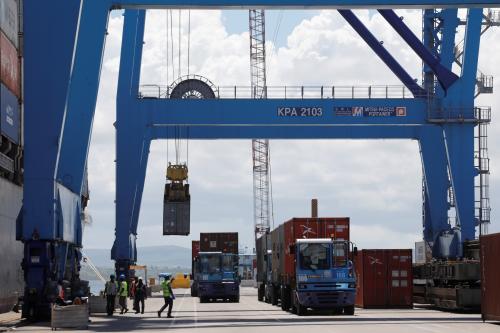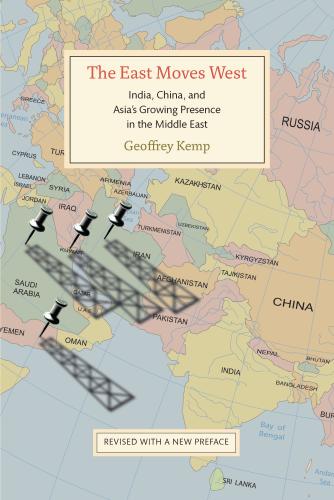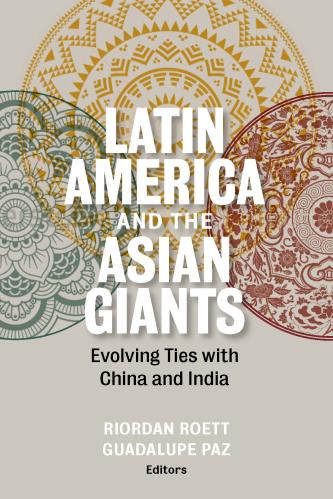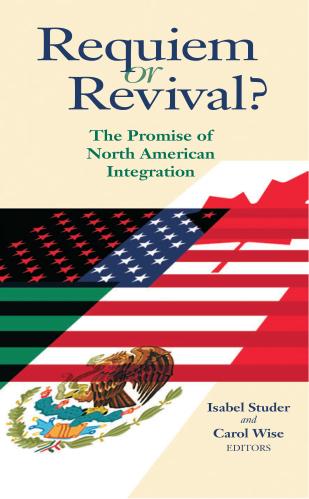The tectonic plates of the global political economy are shifting, and with an accelerating pace: “Trade wars”; “Brexit”; “fake news” and election manipulation; “populism”; the appointment of a “geopolitical commission” in Brussels; unprecedented protests in Hong Kong; South China sea military confrontations; an increasingly assertive Chinese Communist Party—the list goes on. Facing these dramatic changes, smaller, relatively fragile, states, particularly those in Africa, need to build new reference points to anchor their future development or risk being swallowed in the emerging crevasses.
Rather than focus on current events Africans need to discern their underlying drivers and how they frame opportunities, as well as responses.
The modern world economy is now characterized by a rapidly shifting technological frontier within which several previously distinct realms are now converging. Sub-Saharan Africa could benefit from the increasingly interconnected global economy. At the same time, the United States’ tough response to China’s growing economic heft, as well as increased worldwide backlash to globalization, is incentivizing some economies to look inward. Trade policy and strategy is back in focus with a vengeance, and increasingly contested.
How might an Africa caught in the middle of these opposing forces navigate this new global trade environment while maintaining its growth momentum of the last two decades?
Trade integration is creating opportunities for growth
Under the “Fourth Industrial Revolution” the world of work is transforming, placing ever-higher premiums on skills, curtailing the significance of geographic distance as a main shaper of production patterns, and promoting structural transformation. This new, more integrated economy is being ushered in by platform companies straddling information networks and increasingly controlling access to consumer goods via e-commerce, plus services progressively traded across borders in relatively unregulated environments. Africans are entirely recipients, rather than shapers, of these trends.
Though global value chains (GVCs) are being eclipsed as the primary focus of international trade policy discussions as trade skepticism rises across the developed world, they still remain the current and foreseeable global reality, with integration forces buttressing an ongoing, though uneven, process of economic convergence across the developing world. Recognizing the developmental potential of GVCs, many developing countries, particularly in East Asia, have adopted policy packages combining liberalization with regulatory reforms designed to attract “lead firms,” or multinational corporations (MNCs), to their countries. These unilateral reform packages are bolstered by regional trade arrangements, particularly the “best practice” Comprehensive and Progressive Trans-Pacific Partnership and Pacific Alliance, which are designed to facilitate GVC flows. By contrast, the African Continental Free Trade Agreement (AfCFTA) is shallow, reflecting both African states’ lack of institutional capacities and marginal integration into GVC networks.
Trade disintegration reflects nationalism and a decreasing need for low-cost labor
China’s rapid economic emergence, while the greatest economic success story of recent times, has returned geopolitics to the center of global debate, with particular focus on the U.S.-China rivalry, as the U.S. is not likely to accept subordinate status to an authoritarian, illiberal power. This secular conflict is shaping a variety of policy responses, particularly in the trade and investment terrains. The U.S. policy response has been particularly sharp under the Trump administration, incorporating military responses to perceived Chinese provocations, tightened inward investment restrictions on Chinese state-owned enterprises, and the misnamed “trade” wars. Control over Fourth Industrial Revolution technologies is the key battleground, given the implications that has for economic dominance and, via that, military supremacy.
This “strategic contestation” is sharpened by a developed-world backlash against economic globalization, driven by concerns over inequality and middle-class stagnation; related concerns that important groups in society are increasingly excluded from the mainstream; associated concerns over immigrant inflows; and the resultant reassertion of “sovereignty” as a counterweight to the integration trends discussed above. As “strategic contestation” intensifies—promoting uncertainty in relation to GVC investments and curtailing economic growth across the world, especially in China—so demand for a variety of minerals exported by African countries is diminishing. Combined with the structural transformation of the Chinese economy towards services this does not augur well for sustaining export revenues and economic growth in the African countries affected. Accordingly, debt levels are rising, foreshadowing new crises ahead.
Furthermore, economic nationalism has resurfaced and is manifesting in trade and investment policy terrains, for example moves to require local data storage. The Fourth Industrial Revolution could enable this nationalist thrust by truncating offshore manufacturing needs, for example, through 3D printing and robotics.
Unsurprisingly, MNCs are reconsidering their GVC footprints and reducing their exposure to China. This trend may benefit the next rung of poor labor-intensive countries—especially in Africa, notably East Africa. But if the disintegrative technology trend fully manifests, the world of footloose GVC investments that drove industrial success across East Asia may be rapidly eroded. The danger is that GVC restructuring bypasses the continent, thus foreclosing an important development path.
These dis-integrative trends place great stress on the World Trade Organization (WTO), a key guarantor of the post-World War II liberal international economic order. A future without a functioning WTO, notwithstanding its flaws, is certain to unleash great power trade conflicts, with attendant damaging effects for poor and vulnerable economies. Furthermore, if the WTO system ceases to function, then concerns over inequality and middle-class stagnation as well as social and economic exclusion will be significantly amplified.
How should Africans respond?
It is not clear how these divergent trends will affect the incidence and location of poverty in the future. Extrapolating from historical data, by 2035 poverty will be largely concentrated in South Asia and sub-Saharan Africa. In sub-Saharan Africa, where 34 of the current 47 least developed countries are found, states are weak and among the least well-equipped to grapple with global shifts being propelled by the Fourth Industrial Revolution, limiting the extent to which African economies can capitalize on it.
Continuing to build the AFCFTA is part of the answer. However, it has minimal economic value in its own right and will not provide a boost to GVC relocation as currently construed. For the medium term at least, Africa will continue to rely on external markets and investment.
As “strategic competition” intensifies, Africans could be forced to choose between an emerging authoritarian, China-led “bloc” and a countervailing, relatively liberal, U.S.-led (perhaps anchored on the OECD) bloc. While this scenario may present ongoing leverage opportunities, especially for African elites, it is likely to lead to greater emphasis on reciprocity in trade arrangements. Accepting the growing emphasis on reciprocity means Africans will increasingly need to diversify their trading relationships by accepting meaningful free trade areas (FTAs) with external powers. Such FTAs should be seen through the prism of attracting GVC investments from complementary economies, rather than sources of competition per se. They should also be leveraged to channel Aid for Trade investments into building institutional capacities supportive of enhancing capacities to trade.
Africans should also up their game in the high-stakes WTO reform negotiations currently unfolding in Geneva, with a view to securing the institution’s future. Currently, Africans participate primarily to carve out exceptions and leverage aid flows. Supporting reasonable U.S. demands, notably with respect to countries graduating from special and differential treatment status once objectively verifiable development thresholds have been passed, will be essential. Not to do so will drive the U.S. and some developed countries further from the institution, hasten its demise, and sharpen the shocks set out above.
The Brookings Institution is committed to quality, independence, and impact.
We are supported by a diverse array of funders. In line with our values and policies, each Brookings publication represents the sole views of its author(s).










Commentary
How should Africans respond to the investment, technology, security, and trade wars?
September 30, 2019